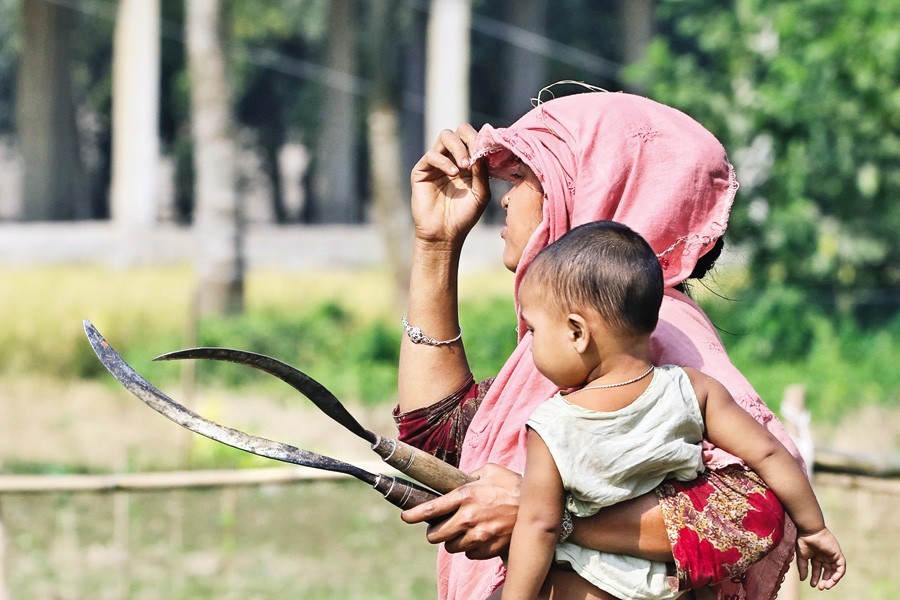Although Bangladesh has qualified for graduating to a middle-income country, its women workforce is still going at a slow pace to enter mainstream economy.
Yet, 85 per cent of women are working in the informal sector despite their footprint in income-generating activities is blindingly obvious.
For women entrepreneurs too, many drop out from businesses for a lack of adequate skills, financial literacy, poor market access and access to finance.
The government has taken multiple steps to upskill and reskill women workforce and also set up the National Skill Development Authority (NSDA) to this end.
However, the NSDA has still to start women-centric skill development programme in the past two years.
NDSA executive chairman Dulal Krishna Shaha says a policy has been drafted to proceed on the women's skill development issue.
"We hope it'll be approved soon so that the authorities can launch the steps in a planned way," he adds.
Meanwhile, Centre for Policy Dialogue executive director Dr Fahmida Khatun said skill development training should be designed as per demands of the market and employers.
"Women need training and guidance to decide what business they should start and how to get access to market," she added.
Dr Fahmida said there are several women's chambers and associations that work on a limited scale and that are yet to play that much effective role.
Those associations can extend support to prepare documentations and get other information relation to getting loan, she added.
Bangladesh Employers Federation secretary general Faruque Ahmed said separate programme should be there with adequate budget to generate employment for women.
"Different projects have a minor gender-focused component. Resource allocation for skill development is not rational for women for this," he cited.
Development partners as well as the government should prioratise this and a special drive is required for this, Mr Faruque said.
He suggested that the government look into the issues while framing development project proposals.
Bangladesh Institute of Development Studies (BIDS) research director Dr Binayak Sen says the number of female workforce in the formal sector is not increasing as expected.
But they are still nearly 40 per cent in the industrial sector, he adds.
"The female labour participation rate in our economy is 36 per cent, which is higher compared to India's 20 per cent," Dr Sen said.
Aspire to Innovate (a2i) project director Dr Dewan Muhammad Humayun Kabir said a2i has skill development training prgrammes for women entrepreneurs and analysing job requirements.
UNDP country economist Dr Nazneen Ahmed says women-friendly public policy, technical education in the higher secondary school and on-the-job training facility are required for female workforce.
"Many of the women face difficulties to join on-the-job training after office," she adds.
They continue low-skilled jobs even in apparel industry too choosing sewing instead of cutting that needs computerised instructions, Dr Nazneen commented.
She suggested that the government come up with support programme and share training expenditure of female participants to encourage the private sector.
Women constitute 30 per cent of the total employed labour force in Bangladesh, according to a BIDS study.


